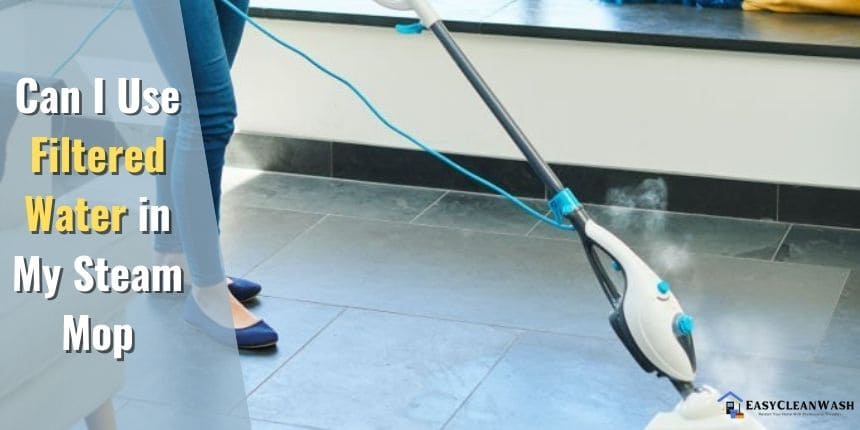If you have a steam mop, you know that they are amazing at getting your floors clean with little effort. But what kind of water should you use in your steam mop? Can you use filtered water?
The answer is yes! You can absolutely use filtered water in your steam mop and it will work just as well as regular tap water. In fact, using filtered water may even extend the life of your steam mop because it will be less likely to get clogged with mineral deposits.
- Fill the water tank of your steam mop with filtered water
- Place the steam mop on your floor and turn it on
- Put the cleaning pad on the bottom of the steam mop
- Hold the handle of the steam mop and guide it back and forth over your floor
- When you are finished mopping, empty the water tank and rinse out the cleaning pad
Page Contents
Distilled Water for Steam Mop
If you’re looking for a way to clean your floors without harsh chemicals, a steam mop is a great option. And if you want to get the most out of your steam mop, using distilled water is the way to go.
Distilled water is free of minerals and impurities, so it won’t leave behind any streaks or residue when used in a steam mop.
That means your floors will be left sparkling clean – without any harmful chemicals.
Plus, using distilled water in your steam mop will extend its life. Over time, mineral deposits can build up in the boiler and other parts of the steamer, causing it to break down prematurely.
By using distilled water, you can prevent this from happening and keep your steam mop working like new for years to come.
What Kind of Water Do You Use in a Steam Mop?
When it comes to cleaning your floors, a steam mop can be a great option. But what kind of water should you use in your steam mop?
The short answer is that you can use either tap water or distilled water in your steam mop.
However, there are some things to keep in mind with each option.
Tap water is the more affordable option, and it will work just fine in most cases. However, if you have hard water, it can leave behind mineral deposits.
This isn’t necessarily a problem, but it can lead to your floor looking dull over time. Distilled water won’t leave behind any mineral deposits, so it’s a good choice if you have hard water. It’s also a good choice if you want to avoid any potential issues with tap water (such as contaminants).
Ultimately, the decision of which type of water to use in your steam mop is up to you. If cost is a factor, then tap water is probably the way to go. But if you’re concerned about hard water deposits or contaminants, then distilled water may be the better choice.
Can I Use Filtered Water in Bissell Steam Mop?
Yes, you can use filtered water in your Bissell steam mop. Filtered water will help to remove any impurities from the water that could potentially damage the machine or leave streaks on your floors.
What Can I Use Instead of Distilled Water in My Steam Cleaner?
If you don’t have distilled water on hand, or can’t find it at the store, there are a few options for substitutes. You can use tap water if your steam cleaner has a built-in filter, or you can boil the water to remove impurities. Another option is to use bottled water that has been filtered or distilled.
Can You Use Purified Water in a Shark Steam Mop?
Yes, you can use purified water in a shark steam mop. In fact, it is recommended that you do so, as it will help to extend the life of your mop and keep it functioning properly. Purified water is simply water that has been filtered or distilled to remove impurities, and it can be easily found at most grocery stores.
Conclusion
You can use filtered water in your steam mop, but you’ll need to make sure that the filter is designed for that purpose. There are two types of filters that are commonly used in steam mops: activated carbon filters and reverse osmosis (RO) filters. Activated carbon filters are the most common type of filter used in steam mops, and they’re effective at removing chlorine from water.
RO filters are more expensive, but they remove a wider range of impurities from water.

